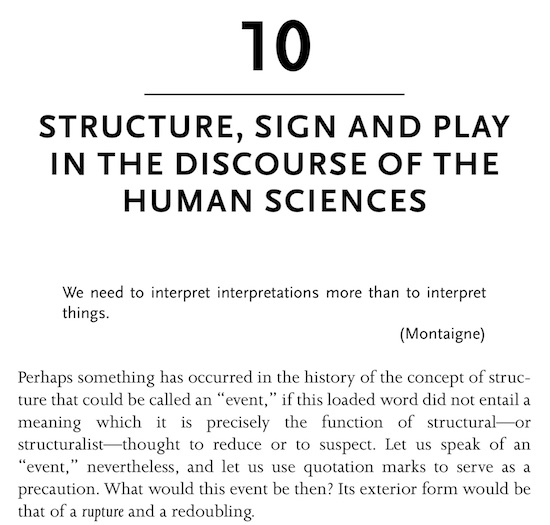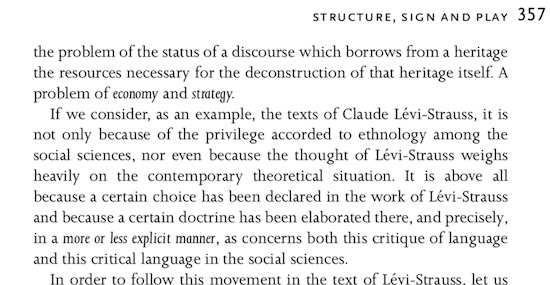
v5k2c2: Where We’re Proud Cultural Marxists
Various conversations elsewhere suggest that there’s some interest in analyzing speech acts. By speech acts, I refer specifically to Jordan Peterson’s argument that there exist “two ways to use language” (0:09), the first use is “a psychopathic goal in some ways” (0:25) inasmuch as “the individual [listener] doesn’t matter” (0:30). This “instrumental language” (1:14) is inherently unethical, in that the speaker has “a goal in mind, which is [his] goal, and… [he] is willing to say anything to obtain that goal” (2:15).
Peterson is usually a very careful speaker; but in this presentation there was some slippage, especially around the term “psychopathic.” I had to look up “psychopath” in the DSM-IV, to make sure I wasn’t missing his point, and I think I understand him. While I don’t think Peterson is going so far as to diagnose everyone he criticizes with a medical problem, I think it’s safe to say that he is criticizing crass PUA types by alluding to psychopathic traits they adopt for the purposes of their game. I think this is a fair assessment. Most people who use pickup lines are adopting a persona which entails shallow emotions, lack of interest in the feelings of others, and getting one’s own needs met, even if these little victories are achieved at the expense of society. Playas really ought to accept this, because our behavior in pursuing wimminz makes such charges generally accurate. Moreover, unlike the wimminz we pursue, who also act this way, we are men, and it is in our nature to accept the reality of our situations, without a lot of stupid rationalization.
Attempts at a critical analysis of Peterson’s point have failed, and the link at top takes the reader to one example. This is not entirely the audience’s fault, inasmuch as Peterson is talking about language, at the same time he’s failing to make a clear point with language. His ambiguity is somewhat surprising, in that Peterson is typically a very clear communicator. At the same time, I am sympathetic, because this is a notion in linguistics, and Peterson has no background or authority in that subject.
Guess who does teach this topic at a big public university?
With this in mind, I hope to clarify Peterson’s point. I also think that there are some important mistakes Peterson is making, which other critics have yet to point out. I’ll attempt to clarify the content of his presentation, and its problems, right now.
By “instrumental language,” Peterson is precisely describing the notion of the perlocutionary speech act, first defined by J.L. Austin, and popularized by (my fellow cultural Marxist, and member of Frankfurt school) Jürgen Habermas. I’ll just call this the Austin-Habermas conjecture.
What do we mean by speech acts? Austin’s work was a reaction to the logical positivists, who argued, somewhat naïvely, that we speak to disclose information. In fact, as Austin points out, the majority of things we say don’t reduce to propositions, with a well-defined truth value. For example:
I want some popcorn,
and
You can borrow my camera if you want to,
and
I think it’s going to rain tomorrow,
Are all examples of speech acts. We don’t say these things to communicate a conjunction of true or false propositions. We say such things to express modal claims, and usually to elicit responses as well.
Let’s suppose one of my readers just watched his new baby being born. After the happy event, the attending physician fills out the birth certificate. The doctor asks the reader to sum up two numbers to get the baby’s weight right. (It’s been a long night, and while he’s an excellent surgeon, he’s horrible with arithmetic.) The reader replies:
Five and three are eight.
In making this statement, my reader has communicated a true proposition, but his utterance didn’t have any metaphysical import. The next question that the doctor asks requires a fundamentally different response, and my reader replies:
I name him Bob.
My making that statement, my reader has not communicated a true or false proposition. He has, instead, caused something to happen. His little boy suddenly has an identifier. In fact, the baby can now be said to be set into an equivalence relation with the word ‘Bob.’ This is the meaning of a speech act. Simply by saying something, the speaker has made it so.
At this point, we should be comfortable conceding at least part of Jordan Peterson’s point, that there a multiplicity of ways to use language. Peterson claims there are two. Austin claims there are at least three distinct speech acts. The most general is called locutionary. A locutionary speech act is the performance of an utterance. It is safe to say that all meaningful statements — true or otherwise — are locutionary. An illocutionary speech act is not the utterance, but is the underlying semantic import of the utterance. The naming of the child, for example, implies that from that day forward, the community is to equate the child with the name.
There is a further subset, called the perlocutionary speech act. This is, in my estimation, what Jordan Peterson refers to by “instrumental language.”
All perlocutionary speech acts carry an illocutionary mood; but very few illocutionary speech acts are perlocutionary speech acts. Let’s analyze a typical perlocutionary speech act, of the type I would use if I were a crass PUA, and if met a new wimminz which I found attractive.
You have such beautiful jugs. Who was the plastic surgeon?
This is a meaningful utterance which doesn’t express a truth value. The illocutionary dimension of this utterance is something along the lines of:
I find your breasts attractive, and wonder if they are real.
The perlocutionary dimension, in contrast, wouldn’t be some communicative particle. It’d be related to a material response, in the world, which I was intending to elicit. This is the sort of “neg” that Peterson describes as psychopathic. He rightly argues that what I’m really communicating is:
Come back to my place and fuck me.
For the record, and as an aside, I know these sorts of trashy negs can be very effective. Even so, I don’t use them, because they really aren’t necessary, and because the women on which they are most effective tend to be the least interesting skanks on offer. Be that as it may, Peterson joins Habermas in describing this sort of communicative praxis as psychopathic. He goes further, implying that an utterance “has to serve every part of an integrated unit… it has to serve enlightenment… it has to serve tradition… and if it isn’t doing any of those things, it’s not the truth” (6:04).
Here our colleague from the psychology department runs into trouble. Peterson conflates perlocutionary speech acts with truth-bearing propositions. In fact, these are not disjoint sets, but they don’t share much intersect space. In our example above, our comment about beautiful jugs doesn’t carry any information that is strictly true. It may be that I find someone’s breasts beautiful, but that doesn’t mean they are beautiful. In the second place, there are many perlocutionary speech acts which are ethically inert. Let’s examine the following utterance:
I sure wish I had a jug of water.
This has no well-defined truth value, but it does have semantic content, so it’s a locutionary speech act. It’s an illocutionary speech act, because depending upon context, it likely means something slightly different than the face value meaning. If I say it in one context, it could mean:
I’m thirsty.
But if I said it in a slightly different context, it could mean:
My car is overheating.
What does the perlocutionary speech act entail? I’m probably eliciting the same underlying response, regardless of context. Namely:
Get me some water.
There are, in fact, a whole lot of ways to use “instrumental language” that don’t make the speaker a likely candidate for the diagnosis of psychopathic personality disorder. We communicate in order to politely ask for things all the time.
In the end, the one thing that I can agree with Peterson about is the need to choose one’s words wisely, and to think about the ethical consequences of getting what he asks for.
Read More:
Jürgen Habermas: The Theory of Communicative Action
J.L. Austin: How to Do Things with Words
 So, you’ve met some sweet thing a couple months back. You’ve gone out with her a few times, maybe fucked. On the surface, your girl seems almost perfect. She cooks for you, she’s sweet and respectful, she’s fun to be around. You’ve done your due-diligence. She’s not too much of a ho’, and she seems to have decent relationships with her family.
So, you’ve met some sweet thing a couple months back. You’ve gone out with her a few times, maybe fucked. On the surface, your girl seems almost perfect. She cooks for you, she’s sweet and respectful, she’s fun to be around. You’ve done your due-diligence. She’s not too much of a ho’, and she seems to have decent relationships with her family.



 Feminist hack Kristin J Sollee has authored a poor excuse for a book, entitled Witches, Sluts, Feminists: Conjuring the Sex Positive. This is an example of the “serious historical literature” surrounding the subject. Some of it is freely available on
Feminist hack Kristin J Sollee has authored a poor excuse for a book, entitled Witches, Sluts, Feminists: Conjuring the Sex Positive. This is an example of the “serious historical literature” surrounding the subject. Some of it is freely available on 


 The sacking of Paige Patterson opens up an aperture for me to discuss Christian social praxis.
The sacking of Paige Patterson opens up an aperture for me to discuss Christian social praxis.


 It is impossible for me to write about this topic without disclosing my own biases. My philosophical interests in school centered on the analytics, and when I studied history I delved pretty deeply into Marx and his ideological descendants. It’s thus fair to say that I have only a surface appreciation of postmodernism, inasmuch as it comes out of the continental tradition, which I’m really not qualified to talk about. Sadly enough, despite the fact that I recognize this lacuna, I’m probably the most qualified to talk about it in the manosphere. One reason that this is unfortunate is the fact that critics like Dalrock seem to be instinctively aware of the dangers of falling into the postmodern trap, without really knowing enough about it to effectively negate its appeal.
It is impossible for me to write about this topic without disclosing my own biases. My philosophical interests in school centered on the analytics, and when I studied history I delved pretty deeply into Marx and his ideological descendants. It’s thus fair to say that I have only a surface appreciation of postmodernism, inasmuch as it comes out of the continental tradition, which I’m really not qualified to talk about. Sadly enough, despite the fact that I recognize this lacuna, I’m probably the most qualified to talk about it in the manosphere. One reason that this is unfortunate is the fact that critics like Dalrock seem to be instinctively aware of the dangers of falling into the postmodern trap, without really knowing enough about it to effectively negate its appeal.

